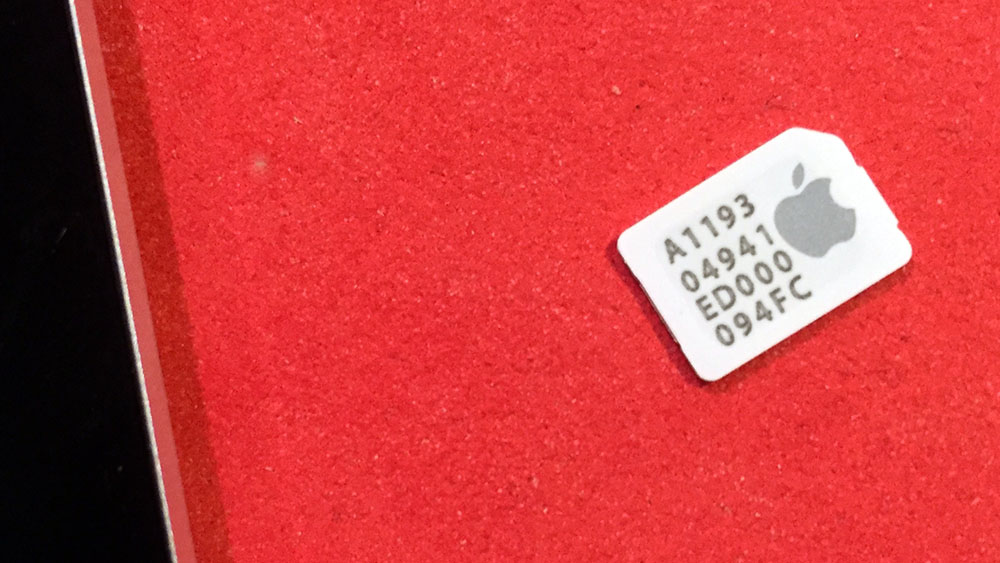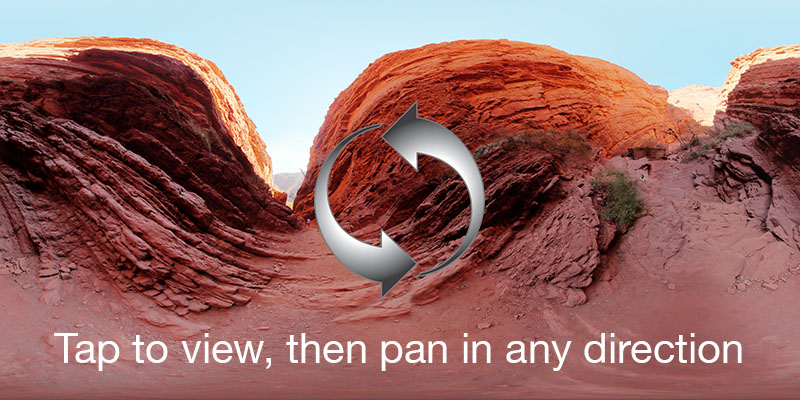The terms of citizenship and social life are rapidly changing in the digital age. No issue highlights this any better than privacy, always a fluid and context-situated concept and more so now as the boundary between being private and being public is shifting. “We have seen the emergence of publicy as the default modality, with privacy declining,” wrote Stowe Boyd, the lead researcher for GigaOm Research in his response in this study. “In order to ‘exist’ online, you have to publish things to be shared, and that has to be done in open, public spaces.” If not, people have a lesser chance to enrich friendships, find or grow communities, learn new things, and act as economic agents online.
The World’s Biggest Car Company Wants to Get Rid of Gasoline
Brian Bremner, Craig Trudell, and Yuki Hagiwara:
The first thing you notice about the Mirai, Toyota’s new $62,000, four-door family sedan, is that it’s no Camry, an international symbol of bland conformity. First there are the in-your-face, angular grilles on the car’s front end. These deliver air to (and cool) a polymer fuel-cell stack under the hood. Then there’s the wavy, layered sides, meant to evoke a droplet of water. It looks like it was driven off the set of the Blade Runner sequel.
Just as the Prius has established itself as the first true mass-market hybrid, Toyota hopes the Mirai will one day become the first mass-market hydrogen car. On sale in Japan on Dec. 15, it will be available in the U.S. and Europe in late 2015 and has a driving range of 300 miles, much farther than most plug-in electrics can go. It also runs on the most abundant element in the universe and emits only heat and water—and none of the gases that lead to smog or contribute to global warming. “This is not an alternative to a gasoline vehicle,” says Scott Samuelsen, an engineer and director of the National Fuel Cell Research Center at the University of California at Irvine. “This is a quantum step up.”
The Mirai is hardly a speedster, though it’s quicker than a Prius. It can reach 100 kilometers (62 miles) per hour in 9.6 seconds. When you punch it, the car feels like an electric—there’s none of the vibration of a combustion engine. Driving the Mirai around a large, man-made island in Tokyo Bay called Odaiba is a little surreal. The interior is a Zen sanctuary of silence, save for the rush of wind passing around the vehicle and the occasional muffled sound of the suspension doing its work. The car can double as a mobile power station: A socket in the trunk can electrify the typical Japanese home for about a week in the event of an earthquake or other emergency.
The Opportunity Cost of War
Today, it is fairly common to turn on the news, read a book, listen to a lecture in history and for the speaker to discuss the cost of a war. Quantifying the cost is usually done in dollars, assessed by how much money was actually spent or how many lives were lost. The victor and loser of a war usually quantify the gains in terms of territory gained, enemies killed, or wealth captured.
However, is this really the right way to quantify the cost of war? For example, the total number of individuals killed in the U.S. Civil War was ~650,000 souls on the battle field, 7 million in total, or about 2.5% of the U.S. population at the time[1]. This number seems monstrous to us even one hundred and fifty years later. Now if we look at World War II, some 80 years after the U.S. Civil War, it is estimated that some 20 million military personnel were killed, as well as 40 million civilians[2]. These numbers seem even more unfathomable, yet which war was really more costly?
Hardship on Mexico’s farms, a bounty for U.S. tables
The tomatoes, peppers and cucumbers arrive year-round by the ton, with peel-off stickers proclaiming “Product of Mexico.”
Farm exports to the U.S. from Mexico have tripled to $7.6 billion in the last decade, enriching agribusinesses, distributors and retailers.
The Looming Olive Oil Apocalypse
The world’s most celebrated olive oil comes from sun-drenched groves of Italy. But Italy is also a hotbed of olive oil subterfuge, counterfeit, and adulteration—and has been since Roman times, as Tom Muellar showed in an eye-opening 2007 New Yorker piece (which grew into a book called Extra Virginity: The Sublime and Scandalous World of Olive Oil.) Next year, getting real olive oil from Italy is going to be even harder than usual. Here’s the LA Times’ Russ Parsons:
As a result of what the Italian newspaper La Repubblica is calling “The Black Year of Italian Olive Oil,” the olive harvest through much of Italy has been devastated—down 35% from last year.
The reason is a kind of perfect storm (so to speak) of rotten weather through the nation:
Alain Ducasse on naturality and connectedness of every participant to the final product.
Today’s Worker Bee series follows Alain Ducasse, one of the two chefs in the world, holding 21 Michelin stars. In the video, he talks about his recently re-opened restaurant Plaza Athenee in Paris, which focuses on all things natural.
“Everything is connected,
The way we eat is important,
Not only for us but also for the planet
We have to change the way we consume
It means less fat, sugar, salt and animal proteins
Which is not only good for us but also for our planet.”
He introduces a cuisine of naturality, which revolves around three elements: fish, cereals and vegetables. A healthier, more sustainable and environmentally conscious meal.
Inadvertent Metadata Collection from a President George W. Bush Talk
I have to admit that I don’t listen to NPR’s news programs that often. I’ve found them to be far too intertwined with the DC political class. Yet, from time to time, I inadvertently collect their signal. So it was this morning.
I was somewhat surprised to hear an interview with former President George W. Bush. It reminded me of an event I attended earlier this year, where the former President spoke for just under two hours. More conversation than speech, the event was illuminating, particularly the comments on isolationism, immigration and economic growth.
Sponsored by a “too big to fail” bank, the event was off the record. Yet, in keeping with the times, I did collect some metadata. I have not searched the metadata, just collected it.
The NPR interview [here, here and here.] reminded me of the most interesting appearance data. Collected by a table mate, a “liberal democrat from New York” – “I’m no fan of Obama”, I found the metadata to be a fascinating look at the dynamics of President Bush the 2nd’s eight years in office.
## Metadata:
The administration official referenced most often by the former President was Condoleezza Rice. Ben Bernanke & Henry Paulson’s names were uttered not a few times while former Vice President Dick Cheney merited a single mention and Defense Secretary Donald Rumsfeld’s name failed to enter the conversation.
Metadata ##.
A few photos and a panorama from the George W. Bush Presidential Library.
American Telcos & The Apple SIM
I have long wanted to give T-Mobile a try. GSM, the CEO’s populist rhetoric and an attractive international roaming scheme (does it work?) attracted my attention.
That said, I’ve been reasonably happy with AT&T’s LTE service, particularly while on travel demonstrating apps to clients. Not to mention doing the same while seated in the passenger seat of a car at speed on an interstate.
I’ve been an AT&T wireless client for some time, since the arrival of the iPhone. Yet, I have become increasingly annoyed at their efforts to gouge us with fees, contracts and what appears to be an assumption that customers are thieves. “You must have an active account before I can give you a SIM card (for an iPad)”.
I’ve learned, now that all of my devices are unlocked, to keep their hands away from ANY changes to my account.
Further, AT&T (& Verizon) has a terrible track record on customer privacy.
And, both firms have mastered the art of political cronyism. Such tactics have a very high price. A lawyer friend, after dealing with the telcos mentioned that she “hates capitalism”. I corrected her: cronyism.
Enter Apple’s SIM.

My recent purchase of an iPad Air 2 (from Apple) offered what I thought was an opportunity to give T-Mobile a try and, if displeased by the service, switch back to AT&T (I did not consider Sprint after chatting with friends who have tried their service).
I turned on T-Mobile’s service using the iPad’s simple cellular data signup service. The first few days were uneventful. T-Mobile offered reasonable LTE service at my office, a client’s facility and home. The signal strength appeared to be less robust than AT&T’s, but the service was adequate. I further used T-Mobile’s LTE service for a four hour meeting, without issue.
Unfortunately, the next day’s four hour meeting was quite disappointing. T-Mobile only offered 4G (3G) service. LTE was nowhere to be found. Note that my geographic locations were identical on both days. The service ranged from unavailable to reasonable during my second meeting.
This experience was unacceptable. Back to AT&T.
Not so fast.
I “thought” that I could add an AT&T data plan to my iPad Air 2’s Apple SIM (yes, I know it is only one way when on AT&T. That is, AT&T locks the iPad’s SIM card…).
Unfortunately, AT&T “won’t activate an Apple SIM previously used on another network“.
Rather than simply adding a new plan to my iPad, I had to visit an Apple (or AT&T) store to obtain an AT&T SIM Card. I could have started with a new Apple SIM card, but one has to pay $5.00 for it while the AT&T SIM is “free”.
The Apple retail employee was friendly enough as I relayed the time waste and hassle factor that lead me to seek a new SIM card. “Yes, but it’s better for us”. Indeed, the Apple SIM certainly solves some (inventory) problems for Apple. Unfortunately, improved cellular choice and performance awaits the entry of another strong player to the US market. The AT&T and Verizon oligopoly needs a big push.
T-Mobile is not it, I’m sad to say.
Related: The $200B broadband scandal (now $400B).
“All information can be used against you in some way.”
“All information can be used against you in some way. And we have an entire generation, the first one ever, about whom everything will be known. Their entire youth is being monitored. And we don’t know what that might mean. How that might be used against them. I look at my father who is 80 and he has only known democracy for the shortest portion of his life. And that is why we have to act now. We have the power to change things. I remember how hopeless it seemed, 25 years ago, that it would ever change. But it did. And we did that. We, the people. And that is why it’s up to us Germans to tell this to the world.”
She is such a powerful, clear, impassioned voice. And it’s obvious that for her, this is personal. “I feel responsible. I feel like I look into one of those glass balls, where others see fog, I see a clear picture and I feel obliged to tell people. These are the tools of a totalitarian system. And just as you cannot be a little bit pregnant so you cannot be a little bit totalitarian without corrupting democracy. And we … in this city … we know where that ends up. We have seen the darkest times, right here.”
Poitras tells me how she has come to censor herself. “It’s not whether or not they’re watching, but the fact that you don’t know if they’re watching. You’ve internalised in some way this authority of the state.” At the end of the interview, I tell her how Snowden spoke at the Observer Festival of Ideas and how afterwards I and my colleague John Naughton asked him questions via Google Hangouts from my laptop. “Am I on the grid?” I ask her.
Salta Canyon Panorama
Tap to view the panorama. Then pan in any direction.
A gorgeous canyon with stunning colors. Well worth a visit.


July, 2014
